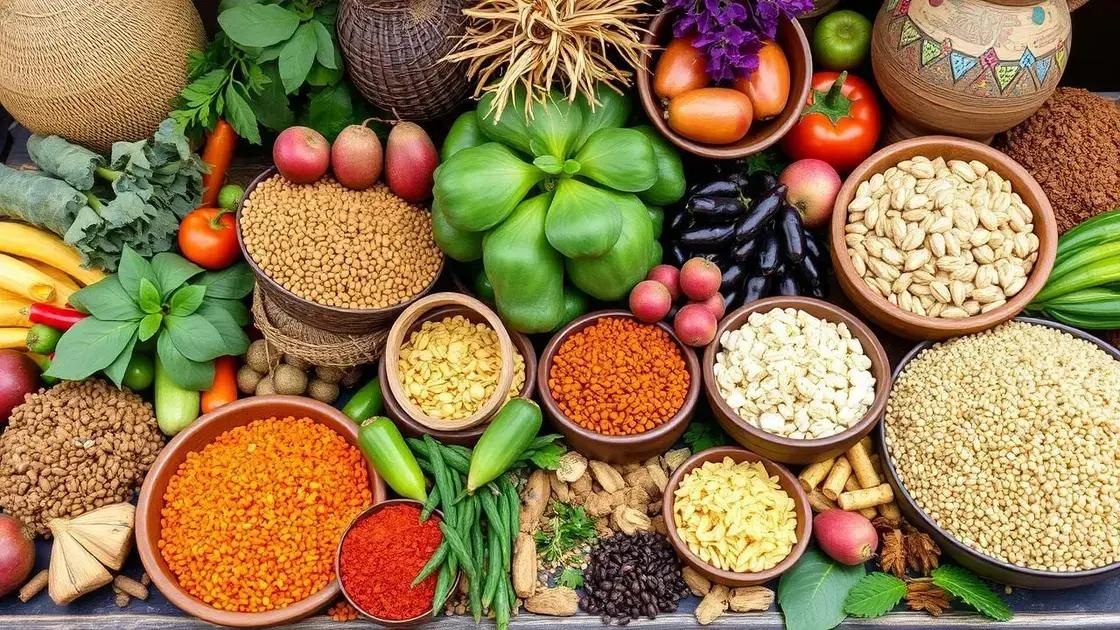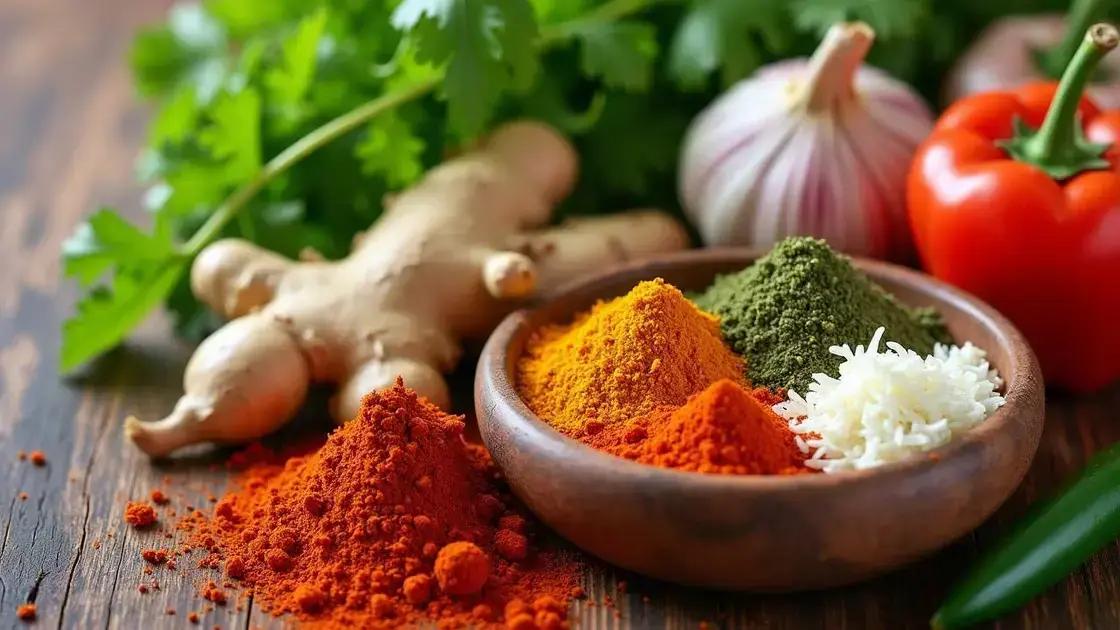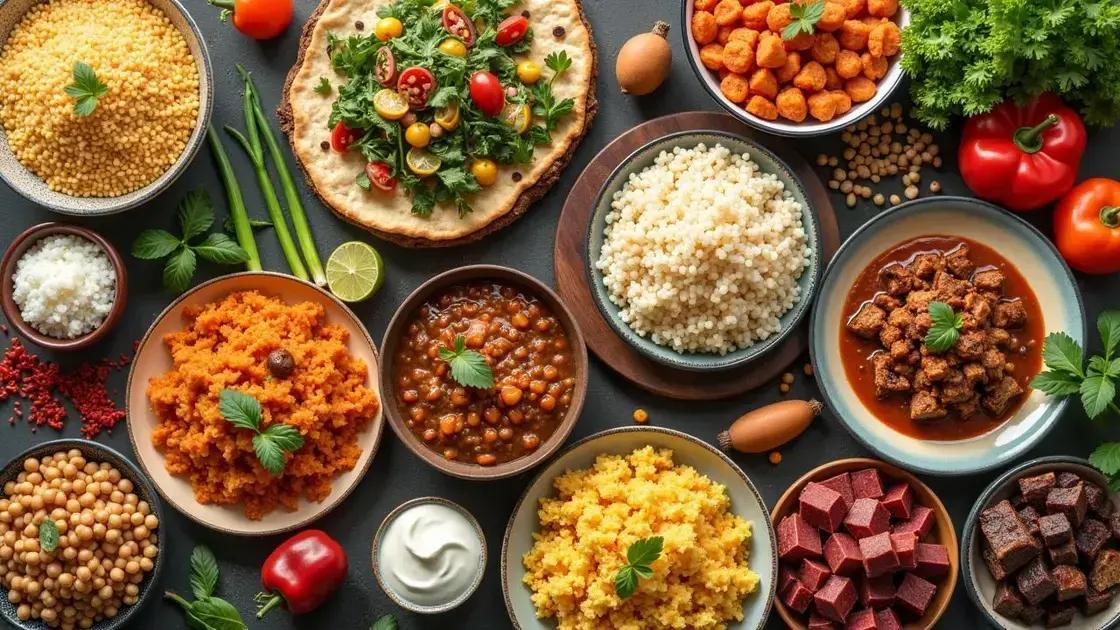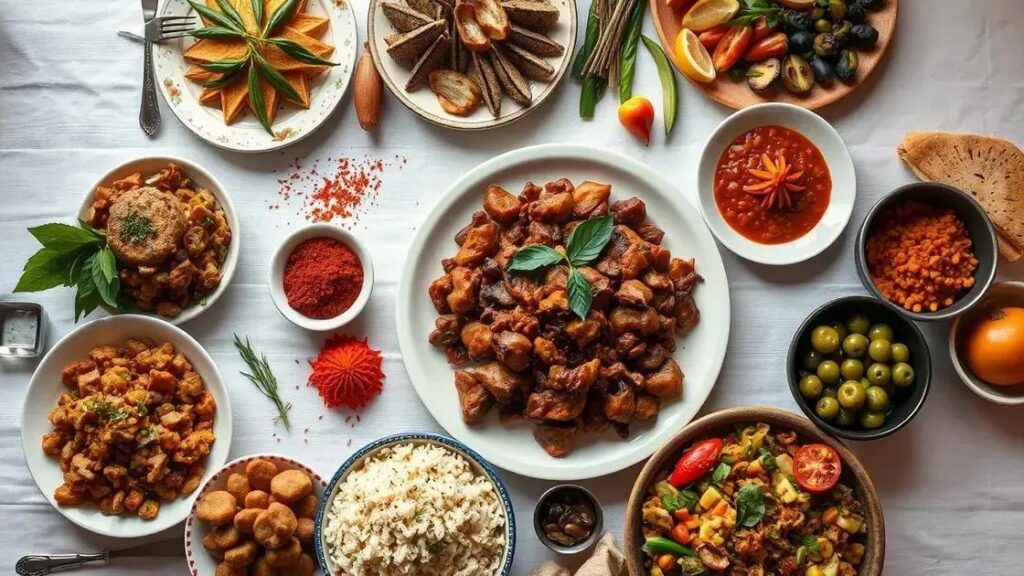Yes, the African recipe often requires special ingredients that vary by region, including essential grains, spices, and unique local produce, which contribute to the authentic flavors of the cuisine.
When considering African recipes, a common question arises: Does the African recipe require any special ingredients? The richness of African cuisine lies not only in the variety of flavors but also in the unique ingredients that contribute to its authenticity. Each region boasts traditional herbs, spices, and cooking methods that define its culinary identity. In this article, we will explore the essential ingredients that enhance African dishes and the regional variations that showcase the continent’s diverse culinary heritage.
Exploring Traditional Ingredients in African Cuisine

African cuisine is a vibrant tapestry woven from a variety of traditional ingredients. Exploring traditional ingredients in African cuisine reveals the deep-rooted cultural significance and diverse flavors found throughout the continent. Each region boasts its own unique specialty ingredients that give dishes their distinctive tastes and textures.
Staple Grains and Cereals
Staple ingredients like maize, millet, and sorghum form the backbone of many African diets. Maize is commonly ground into flour for dishes like ugali in East Africa or fufu in West Africa. Millet and sorghum are often used in various traditional breads and porridge. These grains are not only nutritious, but they also represent a vital part of the agricultural heritage.
Fruits and Vegetables
Fruits such as bananas, mangoes, and papayas add sweetness and nutrition to African meals. Vegetables like cassava, yams, and sweet potatoes are also staples, providing essential vitamins and minerals. Leafy greens, including collard greens and pumpkin leaves, add necessary nutrients and are often cooked in stews or served as sides.
Proteins in African Cooking
Protein sources in African cuisine vary from region to region. Legumes such as lentils and beans are popular, particularly in vegetarian dishes. In many cultures, meat from goats, sheep, and chickens is common, often grilled or slow-cooked in flavorful sauces. Fish, especially in coastal regions, is a significant protein source, showcasing the importance of fresh, locally-sourced ingredients.
These traditional ingredients not only contribute to the unique flavors of African dishes, but they also tell the story of the people and their agricultural practices. By understanding and appreciating these ingredients, we can gain deeper insight into the culinary richness of Africa.
Essential Herbs and Spices for Authentic Flavor

Herbs and spices play a vital role in enhancing the flavors of African recipes. Essential herbs and spices for authentic flavor can transform simple ingredients into extraordinary dishes. Their unique combinations are what make African cuisine stand out.
Coriander
Coriander is widely used across Africa. Its leaves, often called cilantro, add a fresh taste to salsas, salads, and many stews. The seeds are aromatic and can be ground into a powder to enhance dishes.
Ginger
Ginger is another essential spice that adds warmth and depth to African cooking. It can be used fresh or dried in both savory and sweet dishes. From soups to marinades, ginger brings a zesty kick.
Garlic
Garlic is nearly ubiquitous in African kitchens. Its strong flavor makes it perfect for seasoning meats and vegetables. It’s often used in marinades and sauces, giving dishes a rich, savory base.
Piri Piri
Piri Piri is a spicy chili sauce that originated in African cuisine, particularly in Mozambique. It’s made from bird’s eye chili peppers and adds a fiery kick to grilled meats and seafood.
Basil and Thyme
Basil and thyme are common herbs used to flavor stews and soups. These herbs add aromatic notes that can make a dish more inviting and delicious.
These herbs and spices are just a few examples that showcase the diversity of flavors in African cooking. Using them wisely can elevate the taste and experience of your meal.
Regional Variations and Their Unique Ingredients

Africa is a vast continent with a rich tapestry of cultures. Each region offers its own unique dishes and ingredients, showcasing the diversity of its culinary traditions. Regional variations and their unique ingredients highlight the importance of local produce and cooking styles.
North African Cuisine
In North Africa, spices such as cumin, saffron, and paprika are prevalent. Dishes like couscous and tagine are popular. North Africans often use preserved lemons and olives to enhance flavors in their dishes.
West African Cuisine
West African dishes feature ingredients like groundnut (peanut) butter and palm oil. Jollof rice is a famous dish, often prepared with tomatoes and spices. Okra is another key ingredient in many soups and stews.
East African Cuisine
In East Africa, spices like cardamom and cinnamon are essential. Dishes such as ugali (a maize porridge) and sukuma wiki (collard greens) frequently appear on the table. Fish is also a primary source of protein in coastal regions.
Southern African Cuisine
Southern Africa is known for its braai (barbecue) culture, where biltong (dried cured meat) is a delicacy. Chakalaka is a spicy vegetable relish often served with meals. Local grains like maize and wheat are also common.
Understanding these regional variations adds depth to the concept of special ingredients in African recipes. By using local herbs, spices, and ingredients, cooks can create authentic dishes that celebrate the continent’s rich culinary landscape.
In Conclusion: Embracing Africa’s Culinary Diversity
Exploring African recipes reveals the incredible variety of flavors and ingredients that contribute to the continent’s rich culinary heritage. From understanding the essential herbs and spices that enhance dishes to recognizing the unique regional variations, we see how special ingredients define authentic African cuisine.
By incorporating these traditional elements, cooks and food lovers alike can truly appreciate the depth and authenticity of African dishes. The love for local produce and regional specialties not only preserves cultural practices but also fosters a sense of community around food.
As we continue to explore the question, does the African recipe require any special ingredients?, it becomes clear that the answer lies in the vibrant diversity of ingredients available, making every dish a unique celebration of African culture.
FAQ – Frequently Asked Questions About African Recipes and Ingredients
What are some essential ingredients for African recipes?
Essential ingredients include grains like maize, spices such as cumin and coriander, and proteins like fish and poultry, varying by region.
How do herbs and spices impact the flavor of African dishes?
Herbs and spices like ginger, garlic, and piri piri add depth and authenticity to African dishes, elevating the overall flavor profile.
What are the unique ingredients used in North African cuisine?
North African cuisine often features preserved lemons, olives, and spices like saffron and paprika in dishes like couscous and tagine.
How does West African cuisine differ from East African cuisine?
West African cuisine commonly uses groundnut butter and palm oil, while East African cuisine often incorporates cardamom and fresh fish.
Can I create authentic African dishes with local ingredients?
Absolutely! While traditional ingredients are important, many local substitutes can yield delicious results, making African cuisine accessible to everyone.
Why is understanding regional variations important in African cooking?
Understanding regional variations helps appreciate the cultural significance and unique flavors of different African dishes, making the cooking experience richer.













